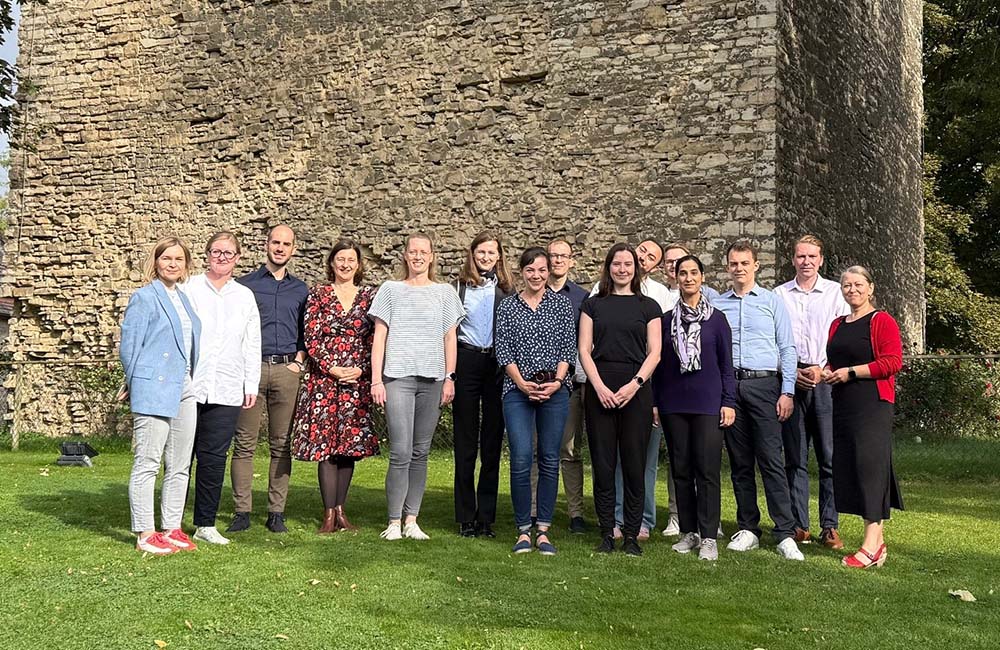Talent incubator for young researchers launches practical training program
Two-day retreat organized by the Young Scientists Academy MED-4-SCIENCE at Magdeburg Medical School shows young scientists how to plan their own projects and secure funding.
How does an idea become a successful and fundable research project? This question was the focus of a two-day retreat on September 19 and 20, 2025, at the start of the MED-4-SCIENCE Young Researchers Academy of the Medical Faculty of Otto von Guericke University Magdeburg at Wanzleben Castle. Young researchers from the fields of medicine and natural sciences learned how to develop their research projects step by step, from the initial idea to a convincing funding application.
"The MED-4-SCIENCE Academy is a central component of our structured support for young researchers. With this program, we are investing specifically in the scientific talents of tomorrow and at the same time strengthening Magdeburg as a research location. Medicine benefits in particular from the innovative strength and fresh perspectives of our young generation. They contribute creative solutions that will be crucial for the healthcare of tomorrow," emphasizes Prof. Dr. Daniela C. Dieterich, Dean of the Faculty of Medicine.

Photo: The first practical training session for young researchers from the MED-4-SCIENCE Academy for Young Researchers at the Faculty of Medicine at the University of Magdeburg took place at Wanzleben Castle. Photographer: private
During the retreat, both projects for clinical studies and experimental approaches to basic research were presented. The topics ranged from cancer research, cardiovascular medicine, aging research, and asthma to inflammatory kidney diseases, gallstones, and psychological pain therapy. In the coming months, the ideas presented will be translated into concrete applications for funding.
The MED-4-SCIENCE Academy supports young researchers in a variety of ways: In addition to workshops such as those in Wanzleben, where applicants can practice writing proposals in a practical setting, the program includes regular peer-to-peer meetings where researchers give each other feedback and exchange ideas. Professional writing training helps participants formulate proposals in a precise and convincing manner. In addition, participants receive individual advice from an internal DFG expert committee with experience in reviewing funding applications.
The program also includes mentoring by experienced scientists and training in soft skills, self-organization, leadership skills, and science communication. The program is complemented by interdisciplinary networking opportunities that promote cooperation across disciplinary boundaries.
“We want to provide young researchers with targeted support and give them the tools they need to successfully implement their own projects. In this way, we prepare them for their individual career paths in medicine,” explains Prof. Dr. Dr. Anne Albrecht, Vice Dean for Young Talent Development and Equal Opportunities at the Faculty of Medicine.
A total of 21 young scientists from the Polycarp-Leporin Program (PLP), the Clinical Studies of the Faculty of Medicine (KSMED) project, and other projects at the institutes and clinics of the University Medical Center Magdeburg are being supported.
Further information on the MED-4-SCIENCE Academy and advice for interested young researchers
Dr. phil. Anna Orlikowski, Advisor for Equality, Diversity, and Young Talent Development, Tel.: +49 391 6725558, anna.orlikoswki@med.ovgu.de






